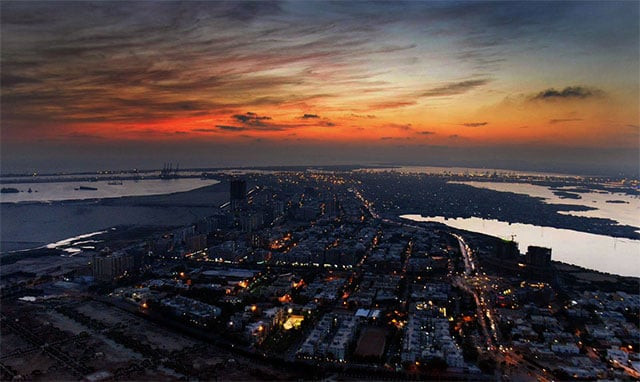Kick-starting economy a challenge for Pakistan
Govt trying to resume IMF programme; lender may ask for fiscal adjustment

Pakistan’s economy has passed through a rough patch in the outgoing fiscal year.
Some media commentators and analysts are of the view that there are early signs of recovery in the economy. There is a lot of noise about the accountability drive and the government has been pressurising the mainstream political parties on and off.
On the economic front, the government is under immense pressure to deal with high unemployment and inflation rates.
The government has already fulfilled certain conditions to resume the Extended Fund Facility (EFF) of the International Monetary Fund (IMF) package. It has introduced certain taxes and adopted much-touted austerity to rein in the fiscal deficit.
The budget contains certain upward adjustments in electricity and gas tariffs as well as the petroleum development levy. On this basis, the electricity tariffs and petroleum prices have been jacked up in the past two adjustments.
Pakistan’s economy is oil dependent to a great deal. If a government is under the IMF programme and crude oil prices increase, it is bound to push up petroleum prices, which is tantamount to heightened political pressure.
Since international crude oil prices have started increasing slowly, the government is contemplating resuming the Saudi oil facility to avoid passing price increase on to the masses.
Contrary to fiscal adjustments, the State Bank of Pakistan (SBP) has brought down the discount rate in quick successions. The impact of this adjustment will start appearing with a lag in the form of some recovery in the real economy.
The lower discount rate will ease liquidity conditions for the existing leveraged businesses.
However, the Pakistan Stock Exchange has been quick to react to the low interest rate and has crossed the 40,000-point mark. A whopping 40% growth in the benchmark KSE-100 index is considered a sign of economic recovery by media commentators and analysts.
Others argue that the stock market is not reflective of the underlying economy, especially in developing countries, since it is not particularly attractive for a large chunk of people.
They further state that listed companies leave their core business of industrial and service expansion and get involved in speculation that, in turn, restrict the real growth of business.
The ongoing recession has scaled down gross external requirements of the country. In addition to this, it allows the State Bank to bolster the foreign exchange reserves, which are hovering around $12 billion. Along with that, the rupee has depreciated a great deal.
The current account deficit was around $13.5 billion or 4.8% of gross domestic product (GDP) in FY19, which fell drastically to 1.1% of GDP in FY20, and this reduction is touted as beneficial for the economy.
It has been achieved at the cost of economic growth where imports have decelerated by 18% and exports have gone down by 7.2%.
Under the Covid-19 situation, the desirable fiscal adjustment is difficult to achieve despite austerity measures. Successive governments did follow austerity desired by the IMF programme.
Usually, it is difficult for a political government to carry on with this kind of adjustment for an extended period of time since business lobbies start to ask for relaxations.
The recession is palpable in the economy. The index of large-scale manufacturing has decelerated by 10.2% in FY20. Many businesses have closed down and a large chunk of people rendered jobless in the fiscal year. Scores of people are either underemployed or working under tough conditions.
In a nutshell, the government is trying to resume the IMF programme where the IMF may ask for fiscal adjustment. Under the current situation, the challenge for the political administration is to kick-start the economy. Let us see how things unfold in coming months.
The writer is the Assistant Professor of Economics at SDSB, Lahore University of Management Sciences (LUMS)
Published in The Express Tribune, August 17th, 2020.
Like Business on Facebook, follow @TribuneBiz on Twitter to stay informed and join in the conversation.



















COMMENTS
Comments are moderated and generally will be posted if they are on-topic and not abusive.
For more information, please see our Comments FAQ